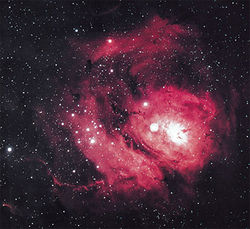From WikiIslam, the online resource on Islam
Jump to navigation
Jump to search
|
|
| Line 184: |
Line 184: |
|
| |
|
|
| |
|
| <option weight="1">{{Pictorial-Islam|1=Setting the Record Straight: The Non-Miracle of Islamic Science|2=[[File:The Miracle of Islamic Science.jpg|180px|link=Setting the Record Straight: The Non-Miracle of Islamic Science]]|3=This is a refutation of Dr K. Ajram's Setting the Record Straight: The Miracle of Islamic Science. The purpose of this analysis is to put the achievements of Golden Age Muslim scientists in the proper perspective; neither denigrating their achievements nor inflating them. All scientific and technological progress is accomplished in progression; Muslim achievements are but links in the chain. Few of the great Muslim scientific achievements stood alone, but were derived by Muslim scientists standing on the shoulders of those who came before them. This analysis also highlights the fatal flaw of the Islamic Golden Age. There were few ‘follow-up’ breakthroughs on the backs of the works of the great Muslim scientists. In effect, the Ummah allowed or encouraged these works to wither on the vine or die stillborn, even before the rise of mysticism at the expense of rational thinking, an event often attributed to al-Ghazzali around the turn of the 12th century. Indeed, it would seem orthodox Islam utterly stifles intellectual reasoning. Therefore, Islam is not the cause of scientific progress during the Golden Age. Many people would say that the Golden Age scientific progress was made in spite of Islam, not because of it. A prime example is the great philosopher-physician Ibn Sina (Avicenna) whose work is constantly referenced by Dr K. Ajram. ([[Setting the Record Straight: The Non-Miracle of Islamic Science|''read more'']])}}</option> | | <option weight="1">{{Pictorial-Islam|1=Setting the Record Straight: The Non-Miracle of Islamic Science|2=[[File:The Miracle of Islamic Science.jpg|150px|link=Setting the Record Straight: The Non-Miracle of Islamic Science]]|3=This is a refutation of Dr K. Ajram's Setting the Record Straight: The Miracle of Islamic Science. The purpose of this analysis is to put the achievements of Golden Age Muslim scientists in the proper perspective; neither denigrating their achievements nor inflating them. |
| | |
| | All scientific and technological progress is accomplished in progression; Muslim achievements are but links in the chain. Few of the great Muslim scientific achievements stood alone, but were derived by Muslim scientists standing on the shoulders of those who came before them. |
| | |
| | This analysis also highlights the fatal flaw of the Islamic Golden Age. There were few ‘follow-up’ breakthroughs on the backs of the works of the great Muslim scientists. In effect, the Ummah allowed or encouraged these works to wither on the vine or die stillborn, even before the rise of mysticism at the expense of rational thinking, an event often attributed to al-Ghazzali around the turn of the 12th century. ([[Setting the Record Straight: The Non-Miracle of Islamic Science|''read more'']])}}</option> |
|
| |
|
|
| |
|
Revision as of 22:19, 31 January 2014
Also see: Template:Pictorial-Islam
Qur'an and a Universe from Smoke
|
|

|
|
Prominent apologists such as Harun Yahya and I. A. Ibrahim have claimed that the Qur'an contains an accurate account of the formation of stars and early phases of the Universe. The entire apologetic argument rests on the Qur'anic description of the "heavens" as "smoke"; a claim which in-turn rests on a false equivalence made between smoke and the makeup of the early universe. The attempt to show that the Qur'an correctly describes the formation of stars (by quoting a portion of Qur'an 41:11) and then the earth (by quoting Qur'an 21:30) is shown to be disingenuous. When the whole of verse 41:11 and its surrounding verses are read in context, it provides a clear chronological account of the earth being formed first and then the hills and sustenance are created upon it. Only after the earth has been created does Allah create the stars. The entire account in the Qur'an is not an accurate reflection of the formation of the Universe. (read more)
|
|
|
